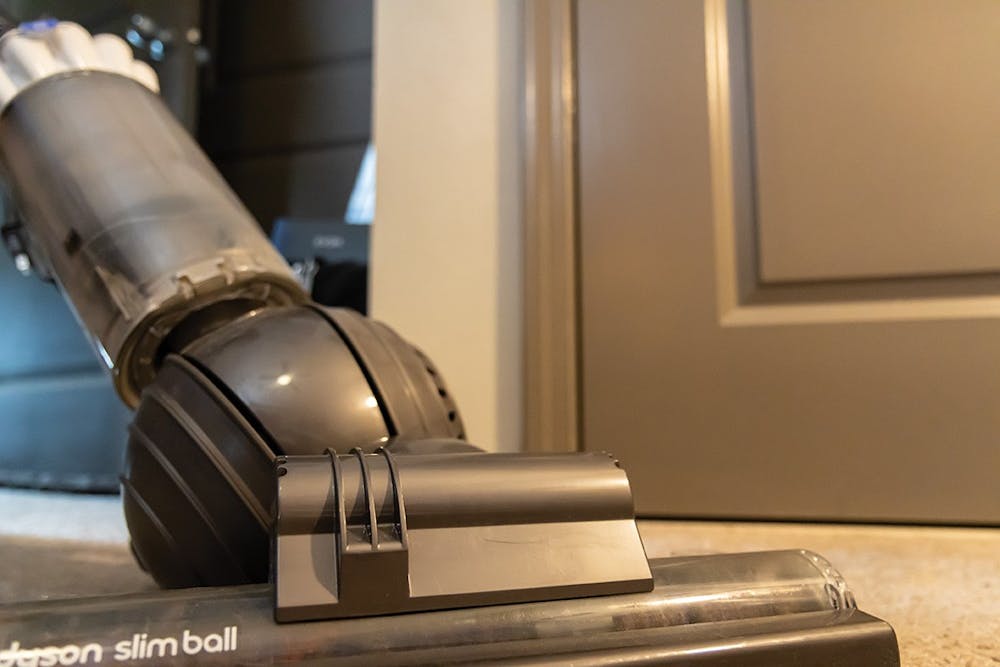Decluttering your living space helps refresh your brain and body for the new season.
The concept of spring cleaning is well-known in our society. Like flowers, the desire to clean blooms more passionately in the spring than any other season.
But the benefits of spring cleaning go beyond participating in this custom. At the shift of a new season, it’s imperative to stay in touch with your physical and mental health by investigating your surrounding environments.
During the cold winter months, it’s easy to let the dust pile up. Neglecting smaller habits such as wiping down windowsills or vacuuming carpeted space can accumulate to an extent that is harmful to your health.
As if seasonal allergies aren’t enough, experts report that internal polluted environments can provoke negative reactions up to five times more intense than outdoor polluted environments.
Air quality is a major health determinant in indoor environments and keeping your space clean helps keep your lungs healthy.
Some indoor pollutants include dust, pet dander, mildew and pollen. These particles can induce several allergy-like symptoms, but more importantly, they’ve been linked to the development of respiratory illness and asthma.
However, spring cleaning isn't just good for your physical health: Our living environments and our mental health are connected.
“Our external environments tend to reflect our internal environments,” USC’s Mindfulness and Resilience Program Coordinator LaQuana Sheppard said.
For example, feelings of stress or anxiety can lead to decreased motivation for simple tasks like washing dishes after dinner. Consequently, living environments that become too messy can create a hostile mental atmosphere where it’s hard to find a place to start.
Decluttering your environment can free your mind after being trapped in the cycle of disorder.
"The more open space that you have, the more clarity and you have in your foundation," Sheppard said.
Not only does the mind feel more at ease, but open space creates more opportunities. As college students, most of us are living in relatively small dorms or apartments. Clearing your space of useless items can optimize storage and create a more comfortable place for your mind to rest.
The COVID-19 pandemic has further exemplified the importance of keeping a clean living space. For many, home and school environments have merged. With more options for remote classes, home serves as a learning space now more than ever.
“Especially with online classes, there’s no way I can sit there and listen to my class when the table is dirty and there’s cups and stuff everywhere,” fourth-year finance student Jarrett Henderson said.
Tidying up could improve your ability to focus and ultimately ease the adjustment to taking classes at home.
Spring cleaning can also benefit your emotional well-being. Getting rid of old things and creating a cleaner living environment can provoke strong feelings of accomplishment and productivity.
Whenever the brain recognizes a task as complete, a neurotransmitter known as dopamine is released. Dopamine is the reason behind feelings of accomplishment after checking an item of the to-do list and is responsible for feelings of productivity.
When the brain is rewarded for wiping down the countertop, mopping the floor won’t seem as demanding because your brain is expecting a positive feeling after completion.
Donating items to someone in need can also boost your emotional well-being, since doing good for others is another activity that sparks joy and induces the release of dopamine in the brain.
Regardless of these benefits, learning to live and clean on your own can be challenging for college students. Developing positive habits during this critical period is important, but in a survey of nearly 100 students at USC, over 60 percent reported not having a spring-cleaning routine.
Some students may have never learned how to properly deep-clean their living space, while others may feel intimidated by the magnitude of starting a regimen.
If you’re feeling this way, it might be more effective to break down your tasks into smaller portions. Accomplishing goals in small portions can be more enjoyable and sustainable over the long term. Sheppard recommended focusing on the most immediate task first.
Checking one item off at a time is the key to establishing healthy and rewarding habits.
If you’re looking to adopt a spring cleaning plan on a budget, consider making affordable swaps for expensive cleaning products. Fourth-year advertising student and self-proclaimed cleaning fanatic Claire Bryant recommended a homemade mixture to replace commercial products.
"Baking soda, vinegar and just like a basic Dawn dish soap, warm water. That can clean just about anything,” Bryant said.
This spring, create a living environment in which your brain and body can simultaneously flourish. Clean up.

